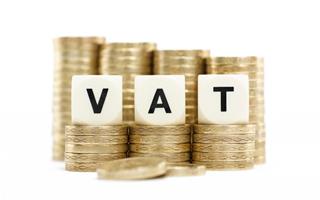BHP's Carla Horsfall explains how charities can save money on VAT for fundraising events by understanding the exemption rules. She outlines the key conditions for exemption and provides examples of events that qualify. The key takeaway for charities is to stay informed, plan ahead, and consider if the exemption benefits them before applying.

Many charities rely on fundraising income as a primary source of funding, often utilising the VAT fundraising exemption. It's crucial for charities to stay updated on the exemption conditions to maintain eligibility. Here's a recap of the qualifying conditions for exemption: if met, VAT cannot be imposed on event supplies, as the exemption is mandatory.
The supply of goods and services by a charity in connection with a fundraising event is exempt from VAT if the event:
- is organised for charitable purposes by a charity or jointly by more than one charity,
- whose primary purpose is the raising of money, and
- is promoted as being primarily for the raising of money.
If the above conditions are met, then an event can qualify for VAT relief under the fundraising exemption.
However, the exemption will not apply if there are more than 15 events of the same type, in the same location, within any financial year. A live performance would count as one event and, if it was repeated weekly in the same location, each performance would count towards the 15-event limit.
It’s important for charities to plan fundraising events in advance. In a financial year, if the 15-event limit is exceeded, none of the events will qualify for exemption. It isn’t just the ones over the limit. If we take the above example of a live performance, by planning in advance a charity could avoid hitting the 15-event limit by holding the event in different locations.
What type of events are covered by the exemption?
Examples of events that can fall within the exemption include:
- Ball, dinner dance, disco, or barn dance.
- Performance - concert, stage production or any other event that has a paying audience including showing a film.
- Fête, fair or festival.
- Horticultural show.
- Exhibition – art, history, or science.
- Bazaar, jumble sale, car boot sale, or good-as-new sale.
- Sporting participation (including spectators) or performance – sponsored walk or swim, or other endurance events
- Game of skill, contest, or a quiz.
- Fireworks display.
- Dinner, lunch, or barbecue.
- An auction of bought-in goods – an auction of donated goods is zero rated.
The exemption doesn’t just apply to the admission to an event, but also to the sale of any merchandise at the event, as well as sponsorship and sale of advertising in programmes.
However, the sale of any surplus merchandise after the event takes place will not qualify for exemption and normal VAT rules will apply.
Benefits for charities
The benefit for charities is that they do not have to charge VAT on income such as entrance fees, but this does mean that VAT cannot be recovered on related costs. Although, recovery may be possible under the partial exemption de-minimis rules.
The aim of a fundraising event is to raise money for your charity. Therefore, if the fundraising exemption is not beneficial because you are unable to reclaim the VAT incurred on event expenditure, you may want to consider failing one of the exemption conditions. This could be achieved by not promoting the event as being primarily for the purpose of raising funds, or by ensuring that you hold more than 15 events in the same location in the year.
The key messages for charities obtaining relief via the fundraising exemption are:
- Keep up to date with the conditions to ensure that they still apply to fundraising events/ activities.
- Plan in advance.
- Consider if the exemption is beneficial.